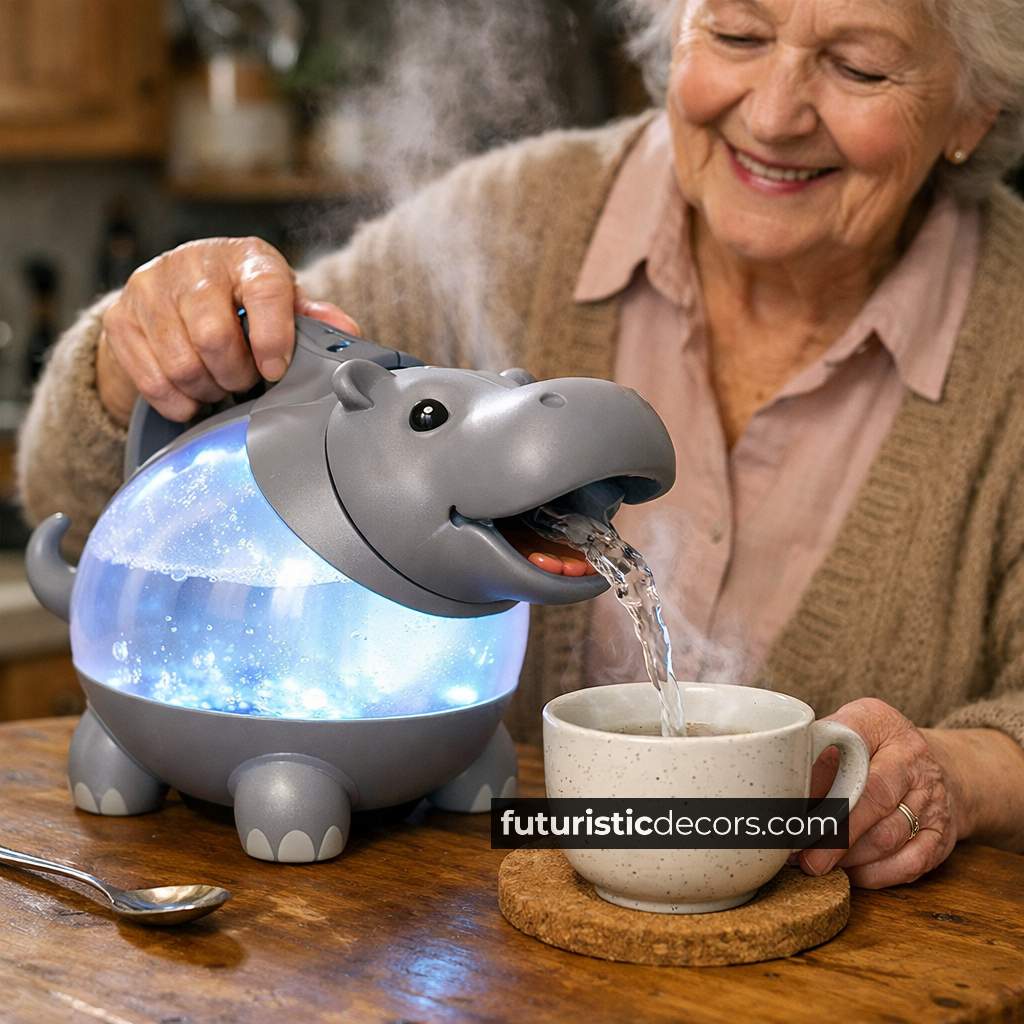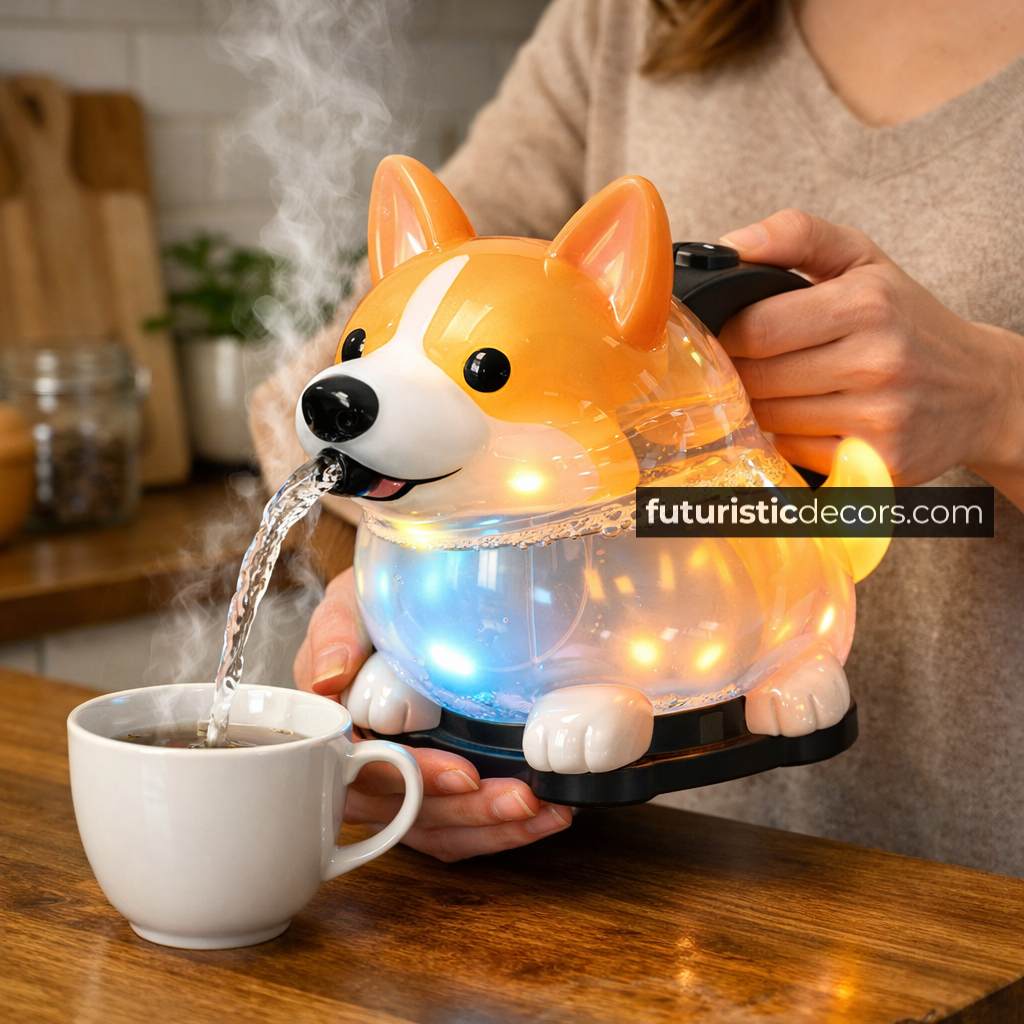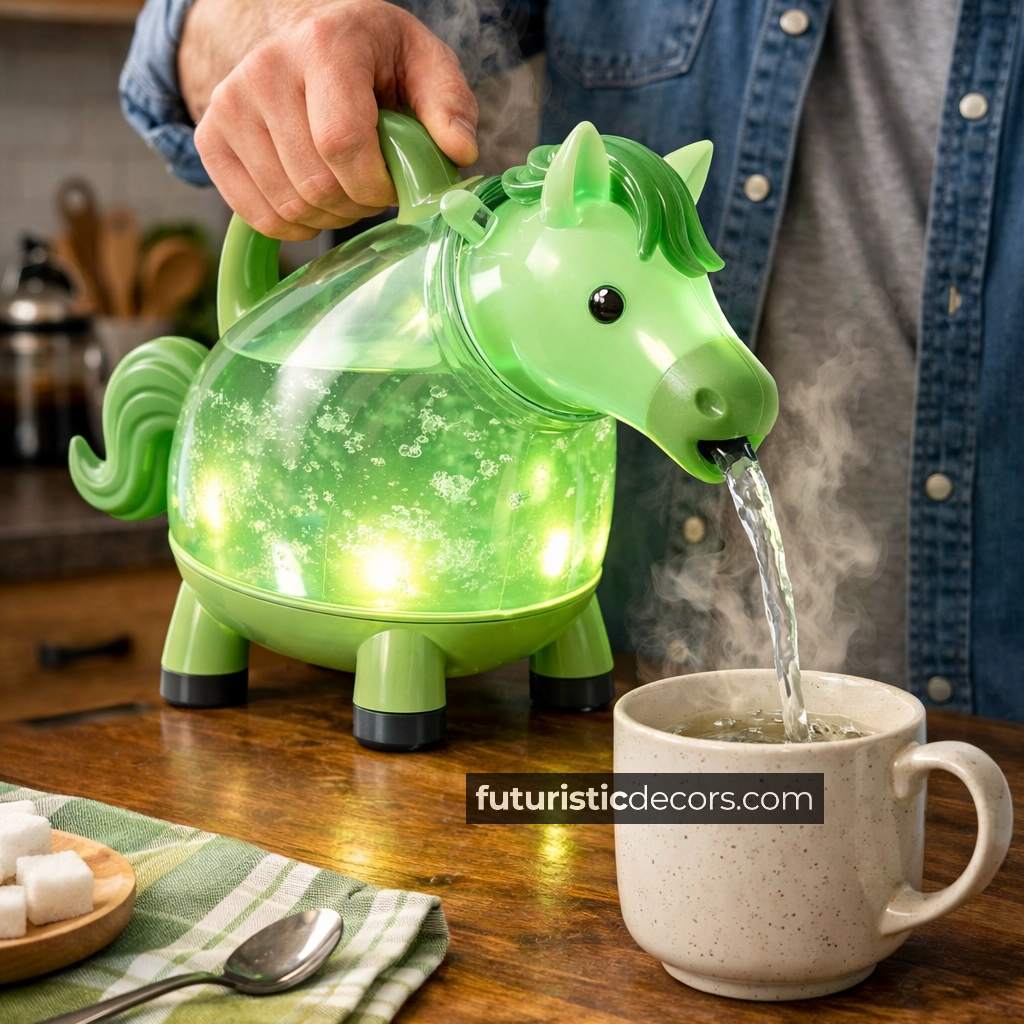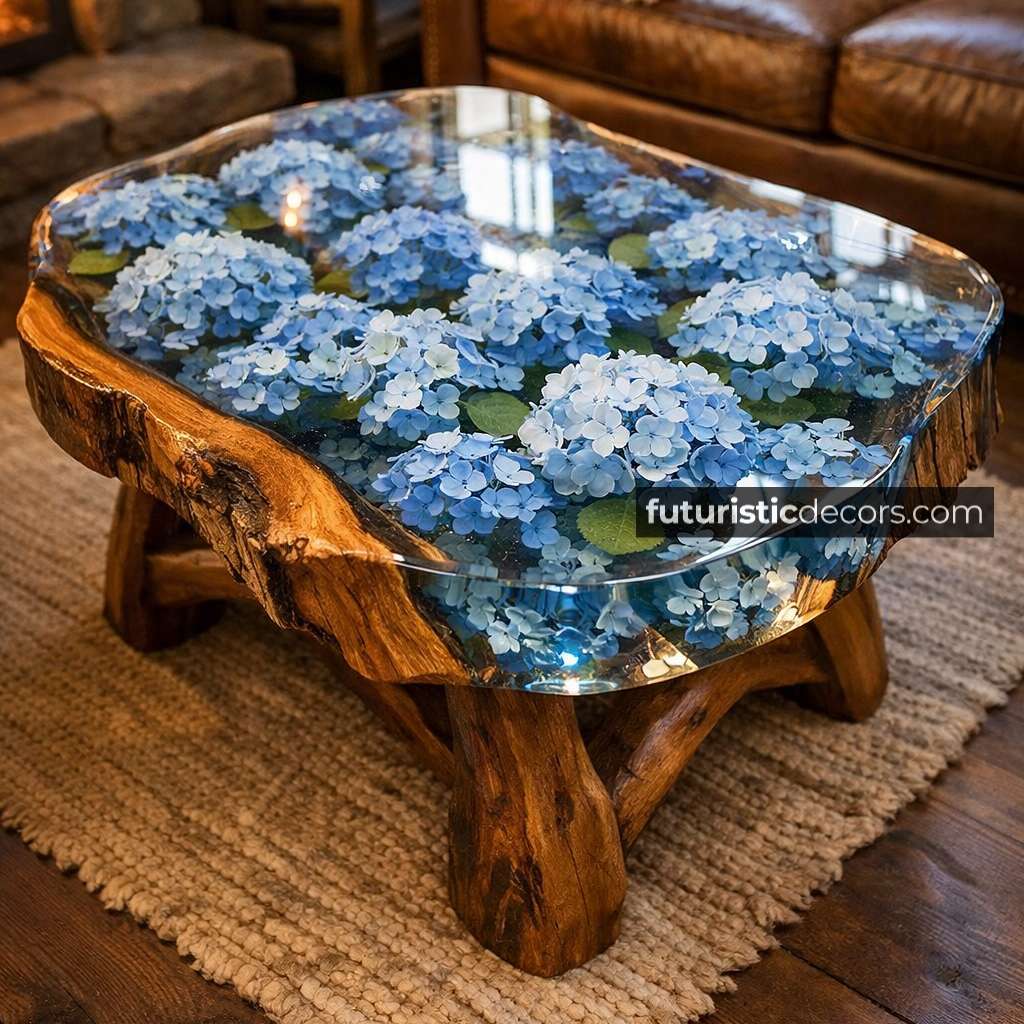For many musicians, the morning ritual of brewing a perfect cup of coffee is as essential as a warm‑up on their instrument. The rich aroma fills the studio, awakening creativity and setting the tone for a productive practice session. Enter the world of Guitar Coffee Makers—a fusion of form and function that celebrates both your passion for music and your love of a flawless brew. These uniquely crafted appliances transform an everyday task into an inspiring experience, blending the curves of a classic guitar body with the precision engineering of a premium coffee maker.
In this article, we’ll explore how Guitar Coffee Makers harmonize aesthetic appeal with barista‑level performance. We’ll delve into their origins, spotlight the key features to consider, and present the top models on the market today. Plus, we’ll share expert brewing tips and care guidelines to ensure your instrument‑inspired coffee companion stays in perfect tune for years to come. Whether you’re a touring guitarist looking for studio decor that sings or a bedroom musician craving a daily dose of inspiration, read on to discover why Guitar Coffee Makers are striking all the right chords.

1. The Harmony of Music and Coffee
Coffee and music share a special synergy: both can stimulate the senses, elevate moods, and foster moments of pure inspiration. For musicians, a great cup of coffee often marks the transition from morning grogginess to creative flow.
- Creative Fuel: Caffeine stimulates the central nervous system, sharpening focus on intricate riffs, complex chord progressions, or lyrical composition.
- Ritualistic Rhythm: The process of brewing—measuring grounds, timing a pour‑over, or frothing milk—mirrors the disciplined practice sessions musicians cherish.
- Aesthetic Ambiance: The visual and tactile elements of a beautifully designed coffee maker can complement a musician’s workspace, whether it’s a home studio or a stage podium.

By integrating the iconic silhouette of a guitar into a high‑performance brewing device, Guitar Coffee Makers celebrate this union of sensory pleasures. They aren’t merely gimmicks; they’re crafted to honor the rituals that keep musicians inspired day after day.
2. What Are Guitar Coffee Makers?
At their core, Guitar Coffee Makers are fully functional brewing machines designed in the likeness of a guitar. These devices vary from manual pour‑overs shaped like classic acoustic bodies to electric espresso machines that combine amp‑inspired controls with high‑grade components. Key characteristics include:
- Signature Silhouette: The housing often mimics a guitar’s body and neck, complete with stylized “soundhole” filters or pickup‑style water reservoirs.
- Integrated Brewing Mechanism: Whether it’s drip, espresso, or French press, the brewing unit is seamlessly embedded within the guitar form.
- Musical Details: Decorative accents—tuning‑peg knobs, fretboard‑style handles, and pickup‑look temperature dials—add authenticity.
- Premium Materials: High‑grade stainless steel, heat‑resistant plastics, and wood veneer finishes ensure durability and an authentic feel.
Originally conceived by independent craftsmen seeking to merge two passions, these coffee makers have evolved into a niche market. Artisans and boutique brands now offer a spectrum of models, from handcrafted wooden pour‑overs to tech‑laden electric machines with PID temperature controls.
3. Key Features to Look For in Guitar Coffee Makers
When selecting the perfect Guitar Coffee Maker, consider these critical features to ensure both musical flair and brewing excellence:
3.1 Build Quality & Materials
- Wood vs. Metal: Solid‑wood veneers deliver a warm, organic look akin to an acoustic guitar, while metal or aluminum frames evoke electric guitar aesthetics and offer superior heat dissipation.
- Finishing: High‑gloss lacquers, matte anodized coatings, or hand‑rubbed oil finishes can greatly influence both durability and visual appeal.

3.2 Brewing Method & Capacity
- Brew Style: Drip machines suit those who crave convenience, while pour‑overs appeal to purists seeking control. Espresso enthusiasts should look for integrated pump systems with at least 9 bars of pressure.
- Water Tank Size: A 1‑liter reservoir yields about 8 cups—ideal for studio sessions—whereas smaller tanks are better for solo practice spaces.
3.3 Temperature Control & Consistency
- PID Controllers: Models with PID (Proportional-Integral-Derivative) systems maintain water within a narrow range (±1 °C) for optimal extraction.
- Pre‑Infusion Settings: Some units allow you to mimic pour‑over bloom phases, enhancing flavor clarity.
3.4 Aesthetic Customizations
- Finish Options: Choose from classic sunburst patterns, matte black, metallic flake, or natural wood grain.
- LED Backlighting: Stage‑style lighting around the “soundhole” indicator can double as mood lighting in a studio.
- Custom Engravings: Personalize your name or band logo on the fretboard‑style handle for a bespoke touch.

4. Top 5 Guitar Coffee Makers on the Market
Below, we showcase five standout models that strike a chord between artistry and performance.
StratoBrew Deluxe Guitar Coffee Maker
Type: Electric drip machine
Capacity: 10 cups (1.25 L)
Key Features: PID temperature control, stainless steel internal boiler, sunburst-finish wooden side panels, and a fret-style carafe handle.
Price Range: $299–$349
AeroTone Acoustic Drip Pour‑Over
Type: Manual pour‑over set
Capacity: Single cup
Key Features: Hand‑carved maple body, stainless steel filter shaped like a guitar soundhole, gooseneck kettle with fretboard grip.
Price Range: $129–$159
JazzFusion Electric Espresso Guitar
Type: Espresso machine
Capacity: Dual 58 mm portafilters
Key Features: 9‑bar pump, stainless boiler, pickup‑style steam wand, digital pressure gauge, and tune knob steam control.
Price Range: $499–$549
RockRiff French Press Fretboard
Type: French press
Capacity: 34 oz (1 L)
Key Features: Borosilicate glass carafe, cast iron body shaped like a guitar, metal plunger top styled as a tuning peg.
Price Range: $79–$99
BassBoost Cold Brew Guitar Server
Type: Cold brew system
Capacity: 50 oz (1.5 L)
Key Features: Removable soundhole‑filter for grounds, cherry wood accents, silicone grip shaped like guitar strings, and a rating gauge for brew strength.
Price Range: $89–$119
Each of these models offers a distinct combination of visual flair and brewing capability. Whether your priority is the bold bite of espresso or the nuanced sweetness of a slow drip, there’s a Guitar Coffee Maker to match your style.

5. How Guitar Coffee Makers Enhance the Musician’s Experience
Owning a Guitar Coffee Maker does more than enrich your morning cup; it deepens the creative ritual:
- Visual Inspiration: Staring at a guitar‑shaped appliance can spark ideas for chord progressions, song themes, or album art.
- Tactile Engagement: The weight and contours of a guitar‑inspired handle or body bring a musician’s familiarity into daily coffee rituals.
- Conversation Starter: Guests, bandmates, and clients will instantly notice your unique setup, creating a point of connection before a single note is played.
- Studio Décor Synergy: These machines complement guitars, amps, and recording equipment, unifying your creative space under a cohesive design language.
By aligning your coffee station with musical motifs, you reinforce the connection between your craft and daily habits, ensuring every brew feels like part of your art.
6. Brewing Tips for the Perfect Cup with Guitar Coffee Makers
To maximize the performance of your Guitar Coffee Maker, follow these simple guidelines:
- Choose Fresh, High‑Quality Beans: Opt for single-origin or micro‑lot roasts with tasting notes that harmonize with your palate—chocolatey for deep riffs or citrusy for pop-inspired melodies.
- Grind Consistency: For drip and pour‑over, aim for a medium-coarse grind; for espresso, a fine, uniform grind is crucial. Invest in a burr grinder to maintain consistency.
- Water Quality & Temperature: Use filtered or spring water heated to 92–96 °C (197–205 °F). Too hot and you risk bitterness; too cool and extraction will be weak.
- Proper Ratios: A general guideline is 1 g of coffee per 16 g of water for drip, 1 g per 12–14 g for espresso. Adjust to taste.
- Pre‑Infusion (Bloom): For pour‑over, wet the grounds with half the water and wait 30–45 seconds before pouring the remainder—this unlocks fuller flavor profiles.
By applying these techniques, you’ll ensure your Guitar Coffee Maker delivers every note of flavor, from the opening sip to the final drop.

7. Maintenance and Care for Your Guitar Coffee Makers
Proper upkeep preserves both performance and aesthetics:
- Daily Cleaning: Rinse carafes, filters, and removable parts with warm, soapy water. Avoid abrasive sponges on wood veneers or painted surfaces.
- Descaling Schedule: Every 1–3 months, depending on water hardness, run a 50/50 vinegar‑water cycle in electric models to prevent mineral buildup.
- Wood and Metal Care: Polish wooden panels with a food‑safe oil and wipe metal sections with a microfiber cloth to remove fingerprints.
- Filter Replacement: Replace mesh filters or paper filters as specified by the manufacturer—typically every 3–6 months or after 200 brew cycles.
Adhering to these routines will keep your Guitar Coffee Maker in concert-ready condition.
8. DIY Guitar‑Shaped Coffee Maker Ideas
For the crafty musician who loves a hands‑on challenge, building your own Guitar Coffee Maker can be deeply rewarding. Consider:
- Repurposed Bodies: Source a decommissioned guitar body, hollow it out, and install a French press mechanism.
- 3D‑Printed Accents: Design custom knobs and “fret markers” in durable PLA or PETG filament to snap onto an existing drip brewer.
- Wooden Pour‑Over Stand: Construct a neck‑shaped stand from hardwood, complete with integrated pour‑over cradle and cable management for a gooseneck kettle.
Refer to buy similar products: Click here
DIY projects not only yield a one‑of‑a‑kind appliance but also infuse your personality into every brew.
9. Spotlight on Artisan Craftsmanship
Behind every exceptional Guitar Coffee Maker lies the vision and skill of dedicated artisans who blend woodworking, metalworking, and coffee‑tech expertise. Delving into their workshops offers inspiring stories of passion, creativity, and meticulous attention to detail.
- Harmony Woodworks (Portland, OR): Founded by luthier‑turned‑barista John Salerno, Harmony Woodworks crafts limited‑edition Guitar Coffee Makers from reclaimed hardwoods. Each unit undergoes a six‑step finishing process—planing, staining, sealing, hand‑buffing, lacquer coats, then final polishing—to achieve a lustrous surface that echoes vintage instruments. Salerno personally tunes the PID settings on electric models, ensuring temperature stability rivals pro espresso machines.
- Amped Brews Collective (Berlin, Germany): Specializing in metal‑frame, amp‑inspired drip machines, this cooperative sources aerospace‑grade aluminum for lightweight yet durable chassis. Their signature “Gain Control” knob regulates brew strength with precision, while the “Volume” steam valve replicates guitar amp knobs both visually and functionally. Each batch of 50 units per year is hand‑assembled and electronically tested to ±0.5 °C accuracy.
- Café String Design (Kyoto, Japan): Blending traditional wood joinery with minimalist aesthetics, Café String Design produces sleek pour‑over stands modeled after the koto (Japanese zither) silhouette. Exotic woods like yew and zelkova are selected for their natural grain patterns, which artisans accentuate with shellac glazing. Their collaboration with local potters yields ceramic filters shaped like guitar soundholes, delivering a harmonious balance of form and function.

Exploring these ateliers reveals how Guitar Coffee Makers transcend mere novelty items, embodying a marriage of artistic expression and precision engineering.
10. Bespoke Customization & Personalization
For musicians and collectors seeking a truly one‑of‑a‑kind centerpiece, bespoke Guitar Coffee Makers unlock limitless personalization:
- Custom Body Shapes: From Stratocaster and Les Paul contours to jazz boxes and semi‑hollow silhouettes, you can commission a maker to replicate your favorite guitar model in coffee‑maker form. CAD design files ensure scale accuracy down to 0.1 mm.
- Exclusive Finishes: Choose high‑gloss nitrocellulose lacquer, antiqued relic finishes, or metallic flake coats in signature band‑color palettes. Some workshops even offer multi‑layered pearl inlays or UV‑reactive pigments that glow under stage lights.
- Engraved Details: Etch your name, band logo, or song lyrics onto the fretboard‑style handle or side panels using laser engraving. Gold‑leaf inlay accents on tuning‑peg dials add a touch of glamour.
- Integrated Tech Mods: Incorporate Bluetooth‑enabled temperature sensing, app‑controlled brew profiles, or built‑in guitar‑amp simulators that riff off your morning brew (for instance, a short guitar lick plays when brewing completes).
While bespoke options command higher price points—often $1,000–$2,500—they deliver a singular blend of performance and personal meaning, perfect for gift‑givers seeking to honor a musician’s passion.
11. Coffee & Music Pairing: Crafting the Perfect Setlist
Just as performers curate a setlist to guide an audience through emotional peaks and valleys, pairing coffee blends with musical genres can elevate both experiences. Here are a few inspiring combinations to try with your Guitar Coffee Maker:
Bluesy Brazilian Brew + Delta Blues
Coffee Profile: Medium roast from Minas Gerais, notes of dark chocolate and brown sugar, smooth body with low acidity.
Musical Pairing: Classic Delta blues—Robert Johnson, Muddy Waters. The mellow sweetness mirrors slide‑guitar melancholy.
Bright Ethiopian Light Roast + Indie Folk
Coffee Profile: Light roast Guji beans, floral aromas, citrus acidity, delicate mouthfeel.
Musical Pairing: Indie folk artists like Bon Iver or Fleet Foxes. The coffee’s uplifting brightness complements acoustic guitar and layered harmonies.
Sumatran Dark Roast + Hard Rock
Coffee Profile: Dark roast Sumatra Mandheling, earthy notes, heavy body, lingering finish.
Musical Pairing: Hard rock classics—Led Zeppelin, AC/DC. The bold intensity of both brew and guitar riffs create a powerhouse session.
Kenyan Medium Roast + Jazz Fusion
Coffee Profile: Medium roast Kenyan AA, bright berry acidity, clean finish.
Musical Pairing: Miles Davis electric era, Weather Report. The coffee’s complexity and crispness echo intricate jazz improvisations.
Costa Rican Honey Process + Pop‑Punk
Coffee Profile: Honey‑processed Costa Rica Tarrazu, sweet honey notes, medium body, balanced sweetness.
Musical Pairing: Blink‑182, Green Day. The coffee’s approachable sweetness and pop sensibility sync with energetic, upbeat chords.
Experimenting with these pairings engages both palate and playlists, making each brew a multisensory composition.

12. Showcasing Your Guitar Coffee Maker: Styling Tips
To make your Guitar Coffee Maker the focal point of your creative space, consider these styling strategies:
- Complementary Décor: Position it alongside actual guitars, amp heads, or music posters. Add floating shelves to display guitar picks, mini amps, or vinyl records.
- Lighting Accents: Install LED strip lights beneath the machine to cast a warm glow, reminiscent of stage lighting. For acoustic‑style units, uplight wooden panels to highlight grain patterns.
- Themed Barista Station: Assemble a “micro‑café” corner with vintage microphone stands repurposed as cup holders, drum‑stick stirrers, and sheet‑music coasters.
- Live Performances: For intimate gigs or coffee‑shop sets, place the Guitar Coffee Maker on stage as part of your setup—baristas can brew espresso shots between songs for guests.
By weaving your machine into the visual narrative of your space, you underscore the union of music and coffee in every glance.
13. Advanced Maintenance & Troubleshooting
Beyond routine cleaning, advanced care ensures long‑term reliability:
- Electrical Components: Annually inspect wiring harnesses, PID boards, and heating elements for corrosion—especially in humid environments. Use contact cleaner on relay switches.
- Pressure System (Espresso Models): Check pump pressure curves; if you notice drop‑offs under load, replace or rebuild seals and gaskets on the pump head. Maintain 9 bar delivery for true espresso extraction.
- Water Quality Management: Invest in a point‑of‑use water softener or reverse‑osmosis unit to minimize scale. Track total dissolved solids (TDS) to maintain consistent flavor profiles.
- Wood & Finish Preservation: Every six months, apply a microcrystalline wax polish to wooden surfaces to seal pores against moisture. Avoid prolonged UV exposure to prevent fading of painted finishes.
- Calibration Checks: Use a precision thermometer and scale to verify that your Guitar Coffee Maker dispenses correct ratios and maintains set temperatures. Tweak PID parameters or replace thermistors as needed.
Adopting these proactive practices transforms your machine from a novelty into a studio‑grade appliance built to last through countless practice sessions.
Conclusion
For musicians who demand more than just function from their coffee makers, Guitar Coffee Makers strike the perfect chord between artistry and performance. They elevate the daily ritual of brewing into an immersive creative experience—one where the shape of an instrument meets the science of extraction. From handcrafted pour‑overs to high‑tech espresso hybrids, there’s a model that resonates with every style and budget.
Embrace the symphony of flavor and form by choosing a Guitar Coffee Maker that speaks to your musical soul. Whether you’re composing your next masterpiece or simply savoring a quiet morning at the keyboard, let the curves, finishes, and brewing precision of these instruments of caffeine inspire each note and nuance. Explore the models above, apply our expert tips, and make every cup a standing ovation for your senses. Your perfect brew—and your next great idea—awaits.
This article was written by the author FuturisticDecors!














